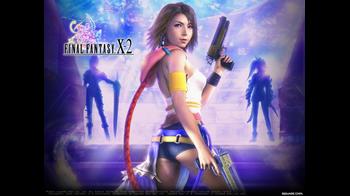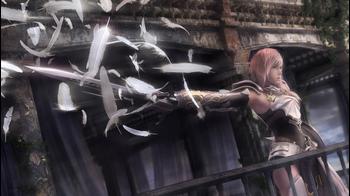
Lightning Returns: Final Fantasy XIII is a statement of intent for the future of the series
It’s been a journey in the making for some time, but Square Enix’s announcement today of Lightning Returns: Final Fantasy XIII, another PlayStation 3 and Xbox 360 title set in the Final Fantasy XIII universe, reaffirms the noises the company has been making for some time: Final Fantasy is a series that is now as much about constant continuation as it once was regular renewal.
A little over a decade ago the idea of a sequel to one of the main-line, numbered Final Fantasy titles was unthinkable. Spin-offs existed, of course, but each new major Final Fantasy title was an all-new, self-enclosed adventure.
Only thematic similarities were shared – but Final Fantasy X-2 opened Square Enix’s eyes to the fact that creating and throwing away entire worlds filled with often compelling characters was madness, especially as costs of development began to spiral higher and higher.
We all know the path from there – FFX-2 led to the Compilation of Final Fantasy VII, continuing on from Square’s greatest success story – and a plethora of spin-offs set in existing universes sprouted over subsequent years.
Final Fantasy XIII began development in April 2004 – and even factoring in the pause in 2005 to produce Square Enix’s PlayStation 3 tech demo, FFXIII’s development still clocks in at almost five years – a massive investment.
It only made sense for Square Enix to reuse a great deal of the world design, engine, combat system and other assets to create a sequel in Final Fantasy XIII-2, then. XIII-2 is an improvement on its predecessor in many ways and worth playing, but for Square Enix it’s also a clever and calculated reuse of much of what took them so many years and cost so much to create whilst developing FFXIII.
It’s not just about in-engine assets, either – designing an original, engaging world and set of characters is no mean feat – and so developing all-new ones is clearly something that costs time and money in equally large measure. It’s more economical, surely, to develop existing ones further.
Selling said characters to the public is even harder – why spend time trying to teach fans to love FF Versus XIII’s Noctis or whoever FFXV’s protagonist will be when there are plenty of people out there deeply invested in the future of Lightning? After a game without her, today fans will be undoubtedly chomping at the bit to play a game where she takes the spotlight again – and alone.
When FFXIII producer Yoshinori Kitase told press that he’d like to target releasing a new Final Fantasy title every 1-2 years in order to keep fans “interested and attracted to the franchise”, nodding to Call of Duty, Battlefield and Assassin’s Creed, is this what he meant? I think the answer is yes.
The future for Final Fantasy is one which will still feature the series’ staple renewal with each new numbered entry – but these are likely to be further spread apart and punctuated by multiple sequel releases.
Could it be that each numbered Final Fantasy title in the future will kick off its own trilogy, as FFXIII did? Given the series’ recent trajectory, I’d argue that it’s likely.
FFIV, V and VI were released in a mere four years while VII, VIII and IX arrived in a similar time frame – but there can be no doubting the days when new worlds could be built so quickly are over. In the case of the Nintendo games, many sprites and assets were reused even if the worlds were new – so in many ways, that ‘golden age’ of the PS1 era where everything was new in every game is in fact something of a magical, brilliant fluke.
There is an elephant in this room, though. What about those who don’t like what’s presented? A fan that disliked FFIX’s cuter, super-deformed approach to character design only had to wait a little over a year for FFX’s realistic styling – while someone who doesn’t like Lightning has been ostensibly stuck with her for an entire console generation. In doing this, does Final Fantasy throw away what has been one of its greatest advantages – frequent diversity?
Or perhaps Final Fantasy’s greatest renewal of all will be moving to a model where the painstaking process of creating a world, characters and lore will last for more than one game? This path gives fans more of popular established characters whilst also allowing the series to set a regular pace for releases once more.
Only time will tell. How do you feel about the serialization of individual games in the FF series? Let us know in the comments!

